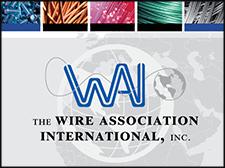Compliance with safety regulations can provide significant benefits. The right certification can ensure workers on the floor are as safe as possible and make your facility seem more trustworthy to potential partners.
 Key Safety Certifications for Your Facility
Key Safety Certifications for Your Facility

Emily Folk | Conservation Folks
Worksite safety is a major concern for manufacturers and other businesses that want to reduce the risk of common industrial hazards — like falls, cuts and object struck-by incidents.
Compliance with safety regulations can provide significant benefits. The right certification can ensure workers on the floor are as safe as possible and make your facility seem more trustworthy to potential partners.
These are some of the best safety certifications for your facility and employees to have. Consider them an investment in your company’s overall well-being.
Individual Employee or Manager Certifications
Individual employees, managers or supervisors can pursue a wide range of certifications that can help them develop or ensure safe working practices.
OSHA-affiliated certification programs provide training ranging from very basic education to highly advanced courses on safety topics. These programs can ensure key employees and managers are familiar with OSHA regulations relevant to their work. They are one of the best ways to ensure employees on-site know what resources, equipment and training workers in their part of the facility need to do their jobs safely.
Like other regulators, OSHA does not offer courses directly. However, it has authorized certain teachers and programs to certify individuals in OSHA regulations and safety standards.
Other major safety organizations also offer valuable certifications. For example, accreditation in ISO 45001 standards will ensure an employee is familiar with occupational health and safety standards. They will learn the steps they can take to ensure they are working safely.
Similar certifications include the 12-day Advanced Safety Certificate, offered by the National Safety Council, and those provided by the National Association of Safety Professionals.
Sector-Specific Safety Certifications
Manufacturers in certain sectors may also want to pursue particular niche- or sector-specific certifications.
For example, the Global Food Safety Initiative (GFSI) recognizes a number of programs that allow for certification. Food and beverage manufacturers wanting to improve safety at their facilities — and demonstrate their commitment to partners — benefit from this kind of industry certification.
Depending on the kind of materials your facility handles, you may also want to pursue other certifications. Under the Resource Conservation and Recovery Act (RCRA), the EPA has the authority to regulate hazardous waste from generation to disposal.
Compliance with EPA regulations on hazardous materials will be easier if your workers have the right certifications that provide knowledge of relevant waste management standards.
Health Certifications
Other certifications offered by major industry and health organizations can help your workers reduce or manage potential risks in the case of an accident.
For example, the American Heart Association's (AHA) Heartsaver Bloodborne Pathogens Training provides training on how employees can protect themselves and others from being exposed to blood or blood-containing materials.
At facilities where injuries are a possibility, this kind of training is one of the best ways to keep workers safe in case of a cut or puncture accident.
The AHA and similar organizations also offer training on CPR and worksite first-aid — both of which can be invaluable and potentially life-saving.
The Right Certifications Can Help Keep Your Facility Safe
Manufacturing and industrial work often comes with major safety risks. With the right certifications, you can ensure workers or supervisors on-site have the knowledge they need to keep the worksite safe.
Various regulators and professional safety organizations offer courses that will certify people in worksite safety and management. More specific industrial certifications can help you tackle sector-specific safety challenges. Health certifications can also be extraordinarily valuable in reducing health and safety risks. Company managers should make sure employees receive the training they need to keep operations running smoothly and safely.
The content & opinions in this article are the author’s and do not necessarily represent the views of ManufacturingTomorrow
Comments (0)
This post does not have any comments. Be the first to leave a comment below.
Featured Product

